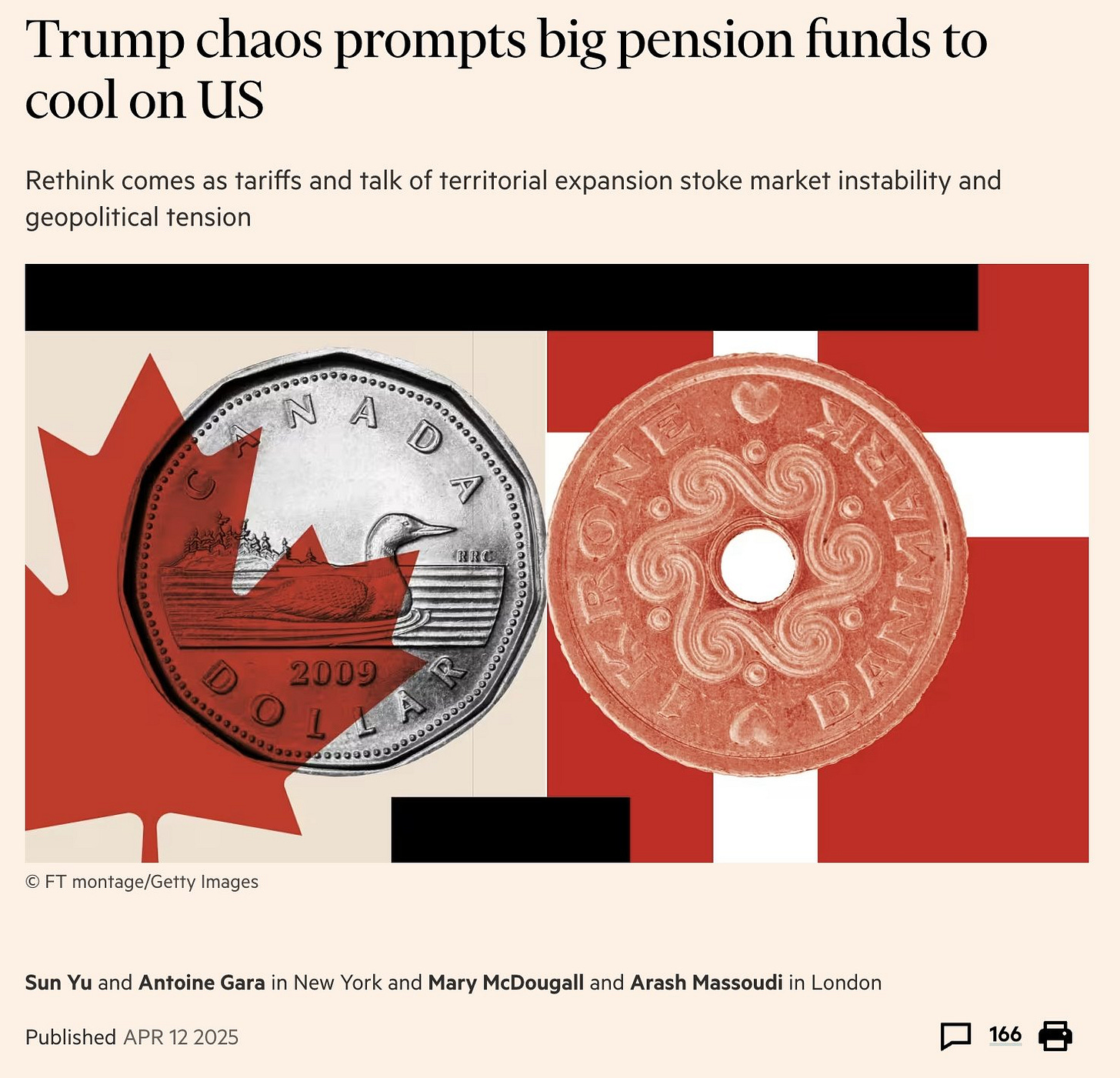China to revalue Gold at $5,319 per Ounce to Solidify Pensions, Property and Life Insurance
China is not alone. European Pension funds vacating USA which is no longer safe.
China will revalue Gold to $5,319 per ounce as part of the restructuring of economy and program with their insurance industry
China's tiered gold acquisition strategy aligns with a broader risk management initiative to stabilize pension and insurance funds by progressively increasing gold-backed allocations from 1% to 5% of total assets. This approach leverages gold’s historical stability (9.8% annualized returns in yuan since 2002) to mitigate portfolio volatility amid economic uncertainties and a slumping property market.
78.2 million troy ounces of gold represents 73.7% of global annual gold production (3,300 metric tons in 2024).
Key comparisons:
Equivalent to 2,432 metric tons (78.2M oz ÷ 32,150.7 oz/ton)
Nearly 6.4x China's annual gold output (380 metric tons)
Exceeds 12 years of US production at 2024 rates (160 metric tons/year)
This scale of acquisition would require coordinated multi-year efforts from China's insurance sector, given that global miners only produced 106.1M troy ounces total in 2024. The 78.2M oz target aligns with strategic reserve-building programs rather than typical commercial stockpiling
China’s 4 phases, restructuring their insurance industry to include Gold
Chinese insurance funds will purchase Gold in 4 steps
Step 1 - gold purchases equaling 100 billion RMB
Step 2 - reach upper limit of pilot phase (1%) then doubling gold to 200 billion RMB
Step 3- Issue gold investment licenses to all insurance companies across 239 insurance companies with total assets of 36 Trillion RMB
Step 4 - RAISE INVESTMENT CAP TO 5% purchasing 1.79 Trillion RMB.
109 Million ounces of Gold by phase 4 meanwhile they are projecting (revaluing) gold price at $5,319 per ounce
China is not alone in Bolstering their Insurance and Retirement funds
Major international pension funds are quietly pulling back from US investments, citing the market instability unleashed by Donald Trump’s tariff policies and unpredictable geopolitical rhetoric. According to recent reporting by the Financial Times, some of the world’s largest institutional investors—including Canadian and Danish pension giants—have either frozen new deals or are actively reassessing their exposure to American assets.
The root of their concern lies in what one executive described as “tariff chaos.” Trump’s aggressive imposition of tariffs, coupled with frequent policy reversals, has injected a level of uncertainty into US markets that makes it increasingly difficult for long-term investors to forecast returns. “Tariff noise makes it harder to evaluate businesses,” a senior official at Caisse de dépôt et placement du Québec (CDPQ) told the Financial Times, adding that their teams are now forced to factor in this unpredictability when considering new investments.
But tariffs are only part of the story. Trump’s recent comments about territorial expansion—ranging from offhand remarks about buying Greenland to more provocative statements regarding Canada—have further unsettled foreign investors. For pension funds tasked with safeguarding the retirement savings of millions, such geopolitical posturing raises red flags about the stability and predictability of the US as an investment destination.
The impact is already being felt. The Canada Pension Plan Investment Board (CPPIB) and several large Danish retirement funds have put new US private equity deals on hold, with executives making it clear that they will not resume normal investment activity until the policy environment stabilizes. Danish funds, in particular, have warned that if the current climate persists, they could significantly reduce their exposure to US assets within months.
While some funds remain active in the US, the overall trend is clear: Trump’s tariff-driven policy chaos and unpredictable geopolitical moves are prompting some of the world’s most cautious and influential investors to cool on America. For now, they are waiting for the dust to settle—hoping for a return to the kind of stability that once made the US a safe haven for global capital.






